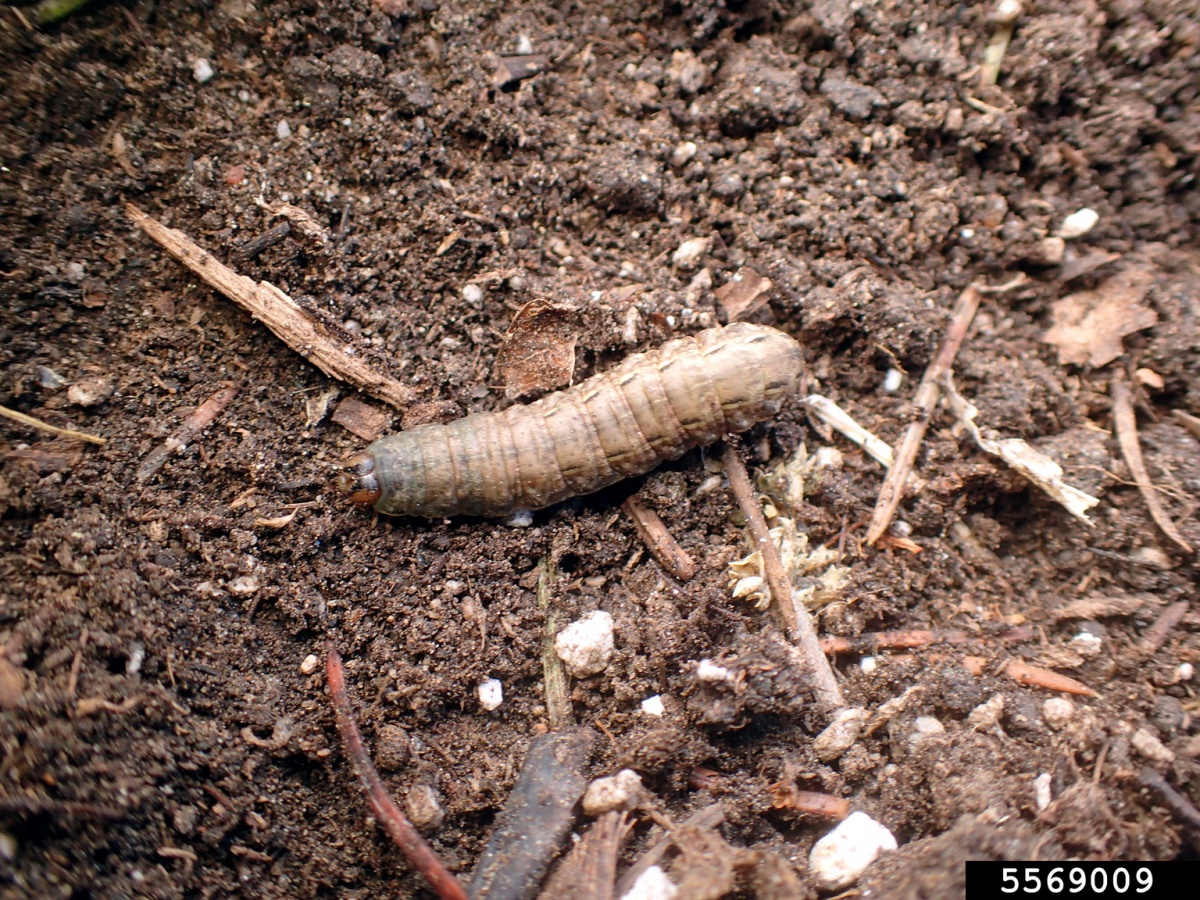What Are the Caterpillars Crawling on Top of the Snow?
Finding a caterpillar in the dead of winter is certainly an unusual sight, but it’s not as uncommon as you may think. The larva of the large yellow underwing moth, otherwise known as the winter cutworm, frequently becomes active during thaws throughout the winter. While similar to other species of cutworms that are pests in agricultural garden settings, the winter cutworm is remarkably more cold tolerant and will emerge to feed whenever temperatures warm. In fact, the mature caterpillars can be found anytime from late fall through May. Their main food sources are grasses and other low-growing herbaceous weeds, so you’re likely to find them in lawns, fields, waste places, or agricultural lands. Like other cutworms, winter cutworms are present in the soil and feed at the bases of plants.
Visual Identification
Winter cutworms are rather non-descript. At about one to two inches long, the larva range from green to dark brown as they mature. The late-stage larvae have distinctive black dashes and a cream colored line along their sides. Their heads are tan and have two inward facing black crescents. Although other species of cutworms and armyworms look similar, the winter cutworm is the one most likely to make a mid-winter appearance.

Origin and impact of the winter cutworm in New Hampshire
Winter cutworms were accidentally introduced from Europe into Nova Scotia around 40 years ago. Since then, they’ve spread throughout the North American continent and are considered widespread in the United States. Fortunately, although winter cutworms feed on a variety of plants, including vegetables, flowers, and lawns, they are not associated with major damage in New Hampshire.
Picture credit for featured photo: Robert Verge
Got questions? The Ask UNH Extension Infoline offers practical help finding answers for your home, yard, and garden questions. Call toll free at 1-877-398-4769, Monday to Friday, 9 a.m. to 2 p.m., or e-mail us at answers@unh.edu.
Related Resource(s)
Do you love learning about stuff like this?
SUBSCRIBE TO Granite State Gardening newsletter
Got questions? The UNH Extension Yard and Garden Infoline offers practical help finding answers for your yard and garden questions.
Call toll free at 1-877-398-4769, Monday to Friday, 9 a.m. to 2 p.m., or fill out webform.
